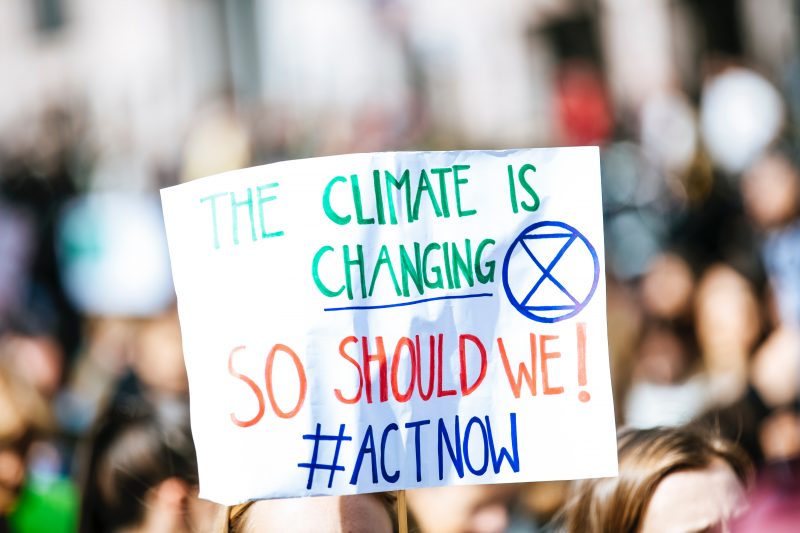 Amelia Sharman argues that a better understanding of how climate scepticism impacts policymaking is vital. We have to create a more critical dialogue about how scientific information on our climate is used to make policy, alongside other factors such as economic considerations and political ideologies.
Amelia Sharman argues that a better understanding of how climate scepticism impacts policymaking is vital. We have to create a more critical dialogue about how scientific information on our climate is used to make policy, alongside other factors such as economic considerations and political ideologies.
This is the third article in a series on climate change and environmental policy being hosted by British Politics and Policy at LSE.
Climate scepticism is increasing in the UK. Events such as ‘Climategate’ – the unauthorised release of over 1,000 emails, meteorological station data and other material from the Climatic Research Unit at the University of East Anglia in 2009 and follow-up release of over 5,000 further emails in 2011 – MIT’s Richard Lindzen’s February presentation arguing that climate change provides no cause for alarm at a public meeting at the House of Commons, and the recent publication by the Global Warming Policy Foundation of a report claiming that wind power generates more harm than good, are all evidence of an upsurge in activity. But does it make any difference?
While a lot of research exists looking at activities of ‘sceptics’, such as their success in gaining media coverage, the following step – whether or not it actually makes a difference to the type of climate policies we implement – is less obvious. Judge Alison McKenna’s recent ruling that the Global Warming Policy Foundation does not exert significant influence over policy makers would seem argue that it might all be a case of ‘much ado about nothing’. However, Brendan Montague, director of the Request Initiative and tribunal plaintiff, claims on his blog that Lord Lawson, chairman of the Global Warming Policy Foundation, has the ear of Chancellor George Osborne. Osborne has not been shy at speaking out against his own government’s environmental agenda.
In their excellent 2010 book, Merchants of Doubt , science historians Naomi Oreskes and Eric Conway argue that scientists can have a huge impact on policy – particularly when they become part of a close circle of trusted political advisors. The authors document how select scientists are used to cloud public understanding of global warming. While this book focuses on the US system where lobbying is more intense and political views on climate change are more polarised than in the UK, it provides an important warning sign. The long positivist tradition of science as providing an uncontroversial ‘truth’ about the nature of the world means individuals (be they scientists or lobbyists using scientific data) can play an extremely influential role in the policy debate – particularly when their version of events accords with political views.
The media also plays an important role in determining the tone and tenor of the public debate on climate change. Recent research from the Reuters Institute for the Study of Journalism at the University of Oxford shows that climate scepticism is an active, predominantly Anglo-Saxon phenomenon, with the research also supporting the claim that climate scepticism is strongly politically linked.
What about the effect of climate scepticism on the scientists themselves? Speaking at the recent LSE Literary Festival, Professor George Gaskell argued that the impact was “enormous”; creating a “fortress mentality” that has had “devastating effects on the confidence of the scientific community”. It takes a thick skin to be a climate scientist these days. Michael Mann, he of the controversial hockey stick graph strongly agrees, going so far as to call our current situation a period of ‘climate wars’.
But it would be naïve to think that science – particularly controversial topics such as climate change – can, or should, be completely de-politicised. In an era where science needs to show impact and value for money at every turn, most results are immediately identified by interest groups as applicable to specific policy prescriptions. And that’s because the way we see the world is different, particularly in terms of how we value particular policy outcomes. Climate scientist Mike Hulme argues that we disagree about climate change because we have different attitudes to risk, different ethical and political beliefs, and different and competing visions of the future. All these things are relevant to the policy debate. Climate change therefore is emblematic of our different perspectives. Is it then possible to be a tree-hugging Conservative? Or what about a climate-denying Labourite?
I argue that we need to provide the space for constructive debates on climate change, and also, that ignoring climate scepticism won’t make it go away. We need to know to what extent, if any, climate sceptics are having an impact on policy debates and how sceptical arguments are received and transmitted through the work of the different types of people who contribute to the policy process, such as scientists or policy advisors. How credible are counter-claims advanced by some sceptics, such as the idea that climate scientists are all involved in a giant conspiracy to dupe the world just so they can obtain more research funding?
We can do better at creating a more critical dialogue about how scientific information on our climate is used to make policy, alongside other factors such as economic considerations and political ideologies. Transparency about what evidence we use to make our policy also needs to go hand-in-hand with respect for systems such as the peer review process – our current best estimation at finding scientific truth.
A more transparent process needs better communication and understanding on both sides. Scientists should be encouraged and rewarded for communicating their findings to the public and policymakers, as well as supported to engage beyond the ‘deficit’ model of science communication. The work of researchers such as Judith Curry and Tamsin Edwards are notable in this regard. Conversely, we need more policymakers who actually understand scientific process and uncertainty. Finally, as Mike Hulme suggests, taking the time to understand the respective values that each side brings to the debate can only benefit how we create both climate science and climate policy.
Please read our comments policy before posting.
Note: This article gives the views of the author, and not the position of the British Politics and Policy blog, nor of the London School of Economics.
Amelia Sharman is a PhD student at the Grantham Research Institute on Climate Change and the Environment at the LSE. Her main research interests are in the relationship between science and policy, and uncertainty and controversy in political decision-making. Previously, Amelia was a Sustainability Specialist at the International Hydropower Association and a Senior Policy Advisor at the New Zealand Ministry for Economic Development.








Overall an interesting article, a few points though.
“How credible are counter-claims advanced by some sceptics, such as the idea that climate scientists are all involved in a giant conspiracy to dupe the world”
Agree – this is not credible…
BUT
I don’t know of any serious sceptical blogger that would make that claim..
Your own straw man?
Have a read of Tamsin Edfwards email to Peter Gleick (the day before he phished Heartland) to see why there is a problem with some scientists attitude to communicating climate change..
http://www.realclimategate.org/2012/02/clarifications-and-how-better-to-communicate-science/
also read Peter’s emails to me where he dismisses me for just who I associate with, or which blog sI comment on. Peterr Gleick stated just discussing issues to be ‘incredibly offensive’. ie ‘hide the Decline’ despite Prof J Curry (mentioned by yourself saying this about that issue.
Prof J Curry:
“Leaving out that data and putting a “likely” confidence level on conclusions from that data is bad science, anyway you slice it.
If you don’t like dishonest, try misguided and pseudoscience.
There is no way this is defensible scientific practice. ”
http://judithcurry.com/2011/02/22/hiding-the-decline/#comment-45770
Sadly, rather too may scientists in my view, have crossed the line to become policy advocates or climate activists.